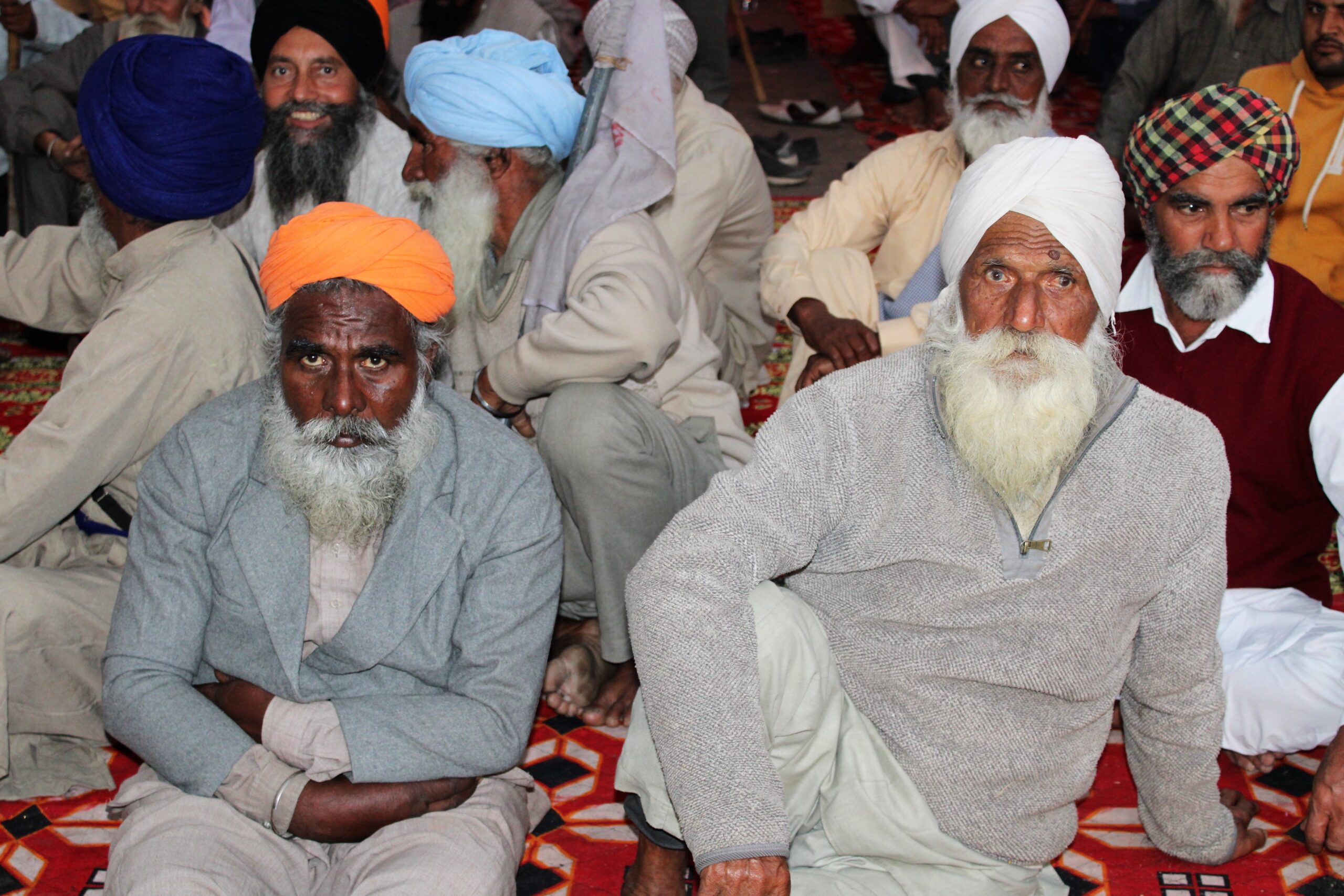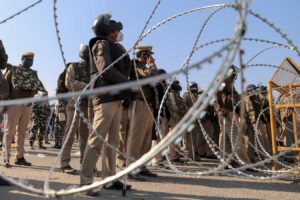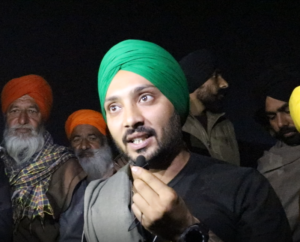“Modiji, don’t help us anymore, you have already helped us so much,” say protesting farmers

The farmers insist that their protest will continue until the government accedes to all their demands (MIG photos/Varsha Singh)
Thursday’s discussions between farmers and various union ministers ended in yet another stalemate as the farmer leaders stood their ground despite tremendous pressure from the government which offered a compromise solution by offering to ‘review’ parts of the three controversial agricultural acts that were passed by the Parliament in September.
The farmers – leaders as well as the thousands of farmers who have gathered around New Delhi – say they don’t trust the central government, especially Prime Minister Narendra Modi to help them in anyway as his objective is to help big business take total control over the huge farm market in the country. They insist that their protest will continue until the government accedes to all their demands.
The farmers accuse the government of trying to mislead both the people and the protestors and of trying to defame the protest as being stage-managed by pro-Khalistan elements. They say protesting in a democracy is a basic right accorded by the Constitution to every citizen. “Under Article 19A of the Constitution we have the right to protest and under 19B, we have the right to gather peacefully and without any weapons. That’s all we are doing. Indian Constitution gives us the right to protest so how can we be terrorists or separatists. They have made it a trend that anyone who speaks against Modi is either a terrorist or should go to Pakistan,” Jitender Pal Singh, a farmer from Mohali district tells Media India Group.
“They call us terrorists and separatists. But those who are terrorists don’t protest for two months. We have been protesting in Punjab for two months and only then we came to Delhi. Now we have been here for a week, but till the government listens to us, we will not go back. But we are not terrorists. Terrorists don’t ever sit on protests,” he adds.
Meanwhile, as talks failed to make headway on Thursday, the Delhi police began issuing notices to protesting leaders for violation of Epidemics Act. “This is a foul and repressive misuse of the Act. The Act has not been applied to Bihar elections where the PM himself campaigned, or to the massive gathering during Dipawali celebrations or to the Varanasi Deepotsava. It is being used specifically against those who dissent,” says All India Kisan Sangharsh Coordination Committee (AIKSCC) in a press statement.

The Delhi police has issued notices to protesting leaders for violation of Epidemics Act (MIG photos/Aman Kanojiya)
What’s wrong with contract farming?
The farmers say that contract farming is only going to help the corporates and is in no way beneficial for them. Mohali farmer Jitender Pal Singh says farmers know the implications of the three Acts and don’t need the government to explain to them the benefits of these laws. Singh explains to MIG the problems with the contract farming and the importance of the minimum support price for Indian farmers.
“Under the contract farming when we sign a deal, the companies will tell us what to plant. Suppose they tell us to grow tomatoes for their ketchup plant. They will finalise terms of the contract, but at the harvest they will tell us your tomato is sour and hence not the best for the ketchup so we can only pay so much for the crop. Or if they tell us to plant potatoes for chips plant, they will tell us that our potatoes are small or that they are sweet and as they need potatoes with a neutral taste, they will cut our rates,’’ he says, adding that as a result, over time, instead of being owners, farmers will become workers on their own lands.
“In 2006 something like this happened in Bihar where contract farming was introduced. Now, landholders with 4 acres of land in Bihar come to work on my fields, even though I have only 2 acres. Why? Because they have suffered the consequences of contract farming,” says Singh.
Both Punjab and Haryana government have been amongst the most generous with their minimum support price for the farmers’ produce and as a result the farmers say there has been a large-scale smuggling of crops from other states to be sold in Punjab or Haryana in order to benefit from the higher price. “Thousands of tonnes of grain was caught in a police raid as it was being brought in from Bihar and UP to be sold in our Punjab. Why is it being sold in Punjab because we get the MSP rates in Punjab. Here our rate is about INR 1880 per quintal. They buy from UP at INR 1200-1300 a quintal and sell it at that inflated rate in Punjab,” claims Singh.
Another thing the farmers say that the law allows farmers to sell anywhere in the country, but question the feasibility of a small farmer travel far away to sell his goods. “Will he not have to pay the freight for transporting the crops? 82 pc of Indian farmers have less than 5 acres land. How can someone with 2 acres of land travel 700-800 km to sell the crop? They have done this for corporates only as it will allow them build a monopoly and buy at wholesale rates,” says Jitender Pal Singh.
One of the biggest problems that the farmers have with the Farm Acts, notably the contract farming act is that they have no recourse to justice as the law expressively bans the farmers from going to the court in case of a dispute with the companies. “The clauses of the law are such that suppose if we enter a contract for 10 years, they may pay us a bit more for the first 2 years and later on they make some excuses and start paying us much lesser and normally we would have gone to court to sue them, but in this law, there is a clause that bars us from going to the court and we can only go to junior government officials. So it is like if you have to complain against the School principal, you go and complain to the peon of the school. It can’t be like this, can it?” asks Jitender Pal Singh.
Government trying to divide farmers
The farmers also say that right from the beginning the government has been trying to divide the farmers who have come together in an unprecedented show of unity as over 500 organisations from various parts of the country have come together for this nationwide protest that has already seen at least 100,000 different protests or demonstrations occur all across the nation. “It is Modi’s strategy and desire to split our movement. So he has been trying to get 3-4 leaders to come and meet the government and during the meeting the government will try all possible tricks to lure the leaders into accepting to end the protest. This has been his standard tactic,” says a 70-year-old farmer from Jalandhar.
The farmers say that nothing short of a repeal of the three Farm Acts would be enough for them to end their protest and head back home. “We will not compromise at all, we will keep sitting here and the way the leaders order us, we will do the same. We will move from here and end our protest only when the government accepts our demands and withdraws all three acts,” says Chamkar Singh from Karnal in Haryana.
“Modi keeps on saying that he will help the farmers. Please don’t help us so much Modiji. You have already helped us a lot,” pleads Jitender Pal Singh.










